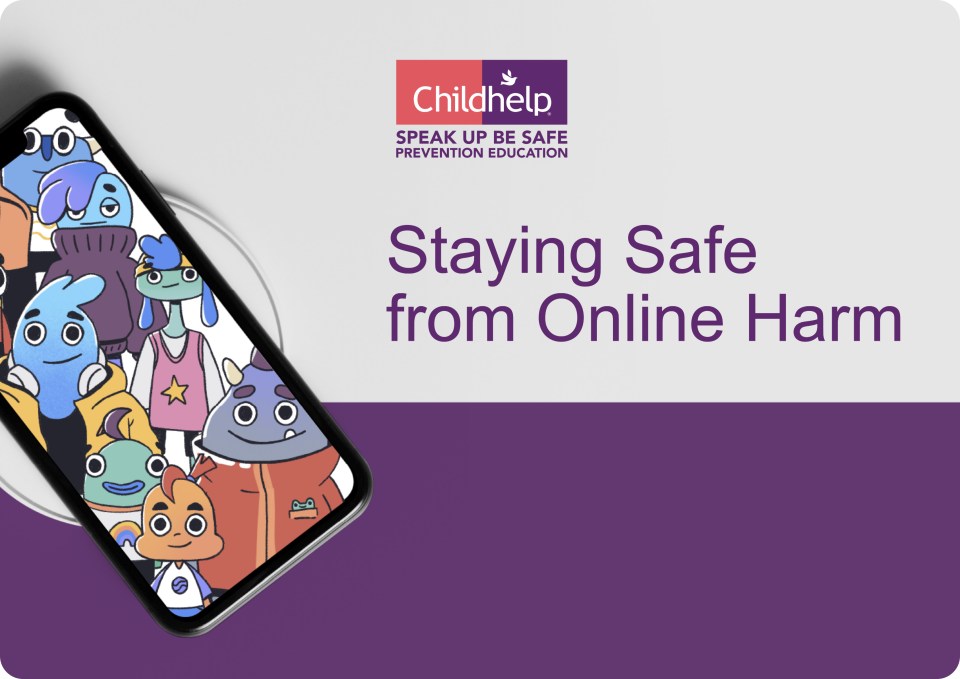
Child exploitation is a horrific crime. At Meta, we’ve spent years developing safeguards to help prevent these crimes on our apps – and today, we’re taking this one step further. We’ve partnered with Childhelp, one of the US’s leading child safety non-profits, to develop a first-of-its kind education curriculum to teach middle schoolers about how to stay safe online, including how to recognize grooming, sextortion scams and other types of online exploitation, and what to do if they or someone they know needs help.
The curriculum has been developed with input and resources from a range of world-leading child safety experts, including from the National Center for Missing and Exploited Children (NCMEC), Thorn, the Department of Homeland Security, Purdue University and the Crimes against Children Research Center. It includes everything parents and educators need – from detailed guides for facilitators to fully scripted lesson plans, complete with interactive classroom activities and fun, engaging videos that help bring the principles of online safety to life for young people.
Importantly, the lessons also focus on developing the skills young people need to navigate both the online and offline world safely, including understanding what safe relationships look like, personal boundaries and the ability to ask for help.
Fully funded by Meta, the curriculum is completely free and available to those who teach, mentor or care for young people, including schools, parents, community or faith-based organizations and after-school programs. It is now part of the Childhelp ‘Speak Up Be Safe’ program, which is already used to help students of all ages deal with a range of safety issues – from physical abuse or neglect to online bullying.
To help reach even more students, we’re also teaming up with LifeSmarts, which will adapt the curriculum to equip high school students with the tools to teach it to middle schoolers nationwide. This helps high schoolers gain knowledge and leadership experience, while younger students will get to learn about these topics directly from older peers they admire.
“For the first time, educators around the country will have a detailed, expert-backed curriculum – for free – to help students feel equipped to avoid sextortion and other forms of online exploitation,” said Antigone Davis, Meta’s Global Head of Safety. “At Meta, we continue to do all we can to protect young people on our apps, and those protections will be even more effective if teens also feel confident in spotting potential harms and know where to go for help. That’s why we’re so excited for this curriculum to get into the hands of teachers and parents all over the country.”
“We’re incredibly grateful to Meta for its support in launching this crucial prevention module,” said Michael Medoro, Chief of Staff at Childhelp. “With the increase in online dangers, this partnership will allow facilitators of the lessons to empower millions of young people to speak up and be comfortable in asking for help. Together, we are building a safer future for our children.”
Adele Taylor, Senior Youth Programs and Partnerships Manager at Thorn, added: “Young people are at the center of the digital world we all live in, and it’s critical that they not only have the resources but also a voice in shaping the solutions designed to keep them safe. By involving the NoFiltr Youth Innovation Council in the development of this curriculum, we’re making sure that the content resonates, is practical and empowers students with the knowledge and tools they need to navigate digital spaces safely.”
This new curriculum builds on our recent anti-sextortion PSA campaign, where we worked with NCMEC and Thorn to develop an educational video that helps teens recognize signs that someone may be a sextortion scammer. The video was shown directly in the Instagram Feeds of millions of teens and young people in the US, Canada, Australia and the UK.
At Meta, we’ve developed a range of safety features designed to fight sextortion scammers at every step. We remove these scammers whenever we become aware of them, and we notify people who have been interacting with an account on Instagram we’ve removed for sextortion. We also take precautionary steps to help prevent sextortion in the first place, such as preventing potentially scammy accounts from interacting with teens, and testing letting teens know if they’re chatting to someone who’s based in another country. Our nudity protection feature blurs nude images shared in DMs and warns people about the risks of sending sensitive photos, and we’ve removed the ability to screenshot or screen record ‘view once’ photos and videos in DM and Messenger, helping prevent those images from being misused.
The post Meta and Childhelp Launch Curriculum to Help Students Avoid Online Exploitation appeared first on Meta.
















 English (US) ·
English (US) ·